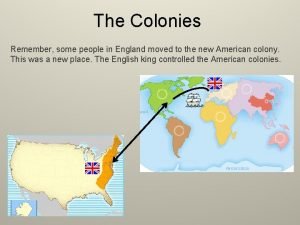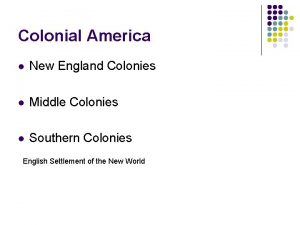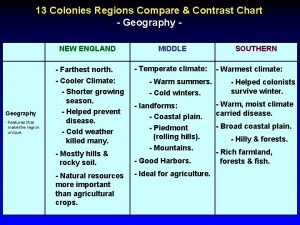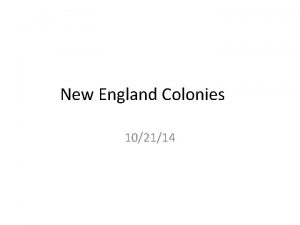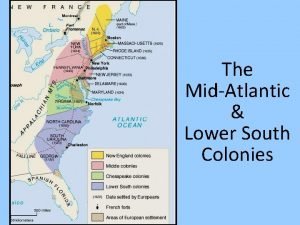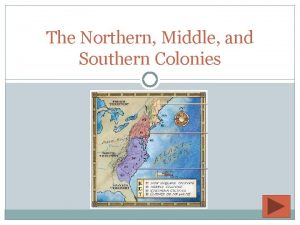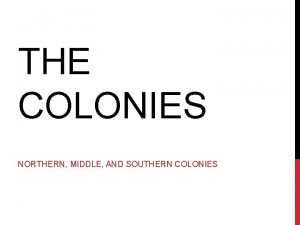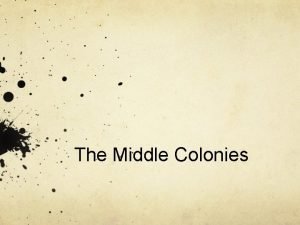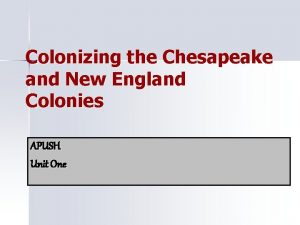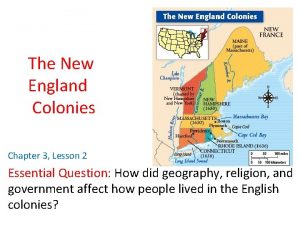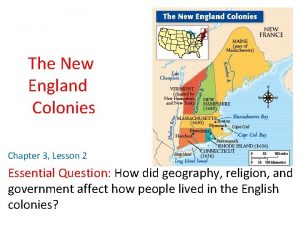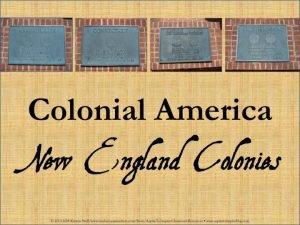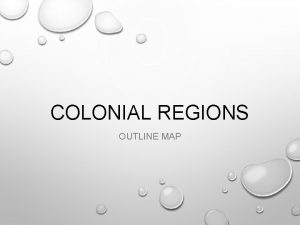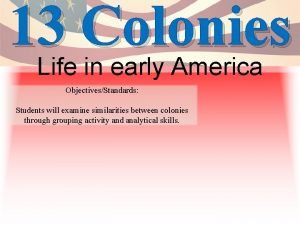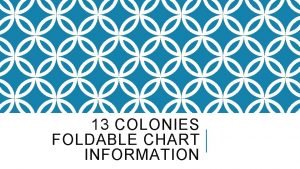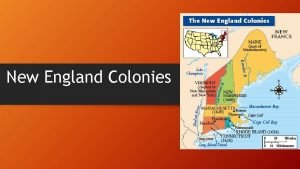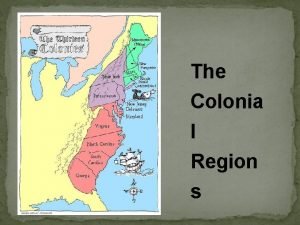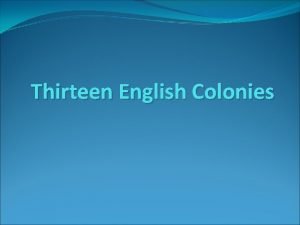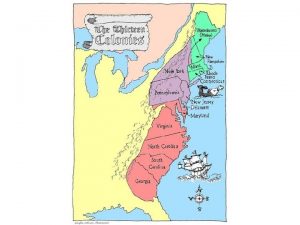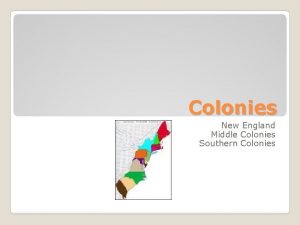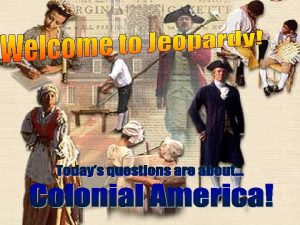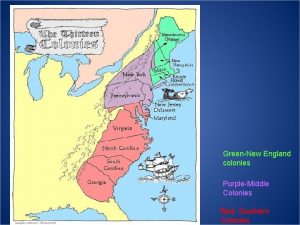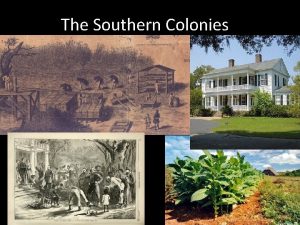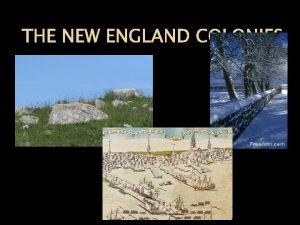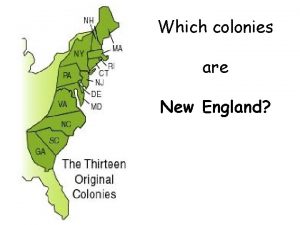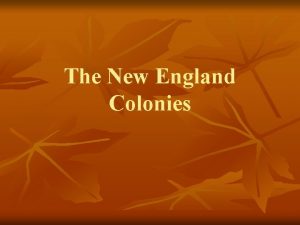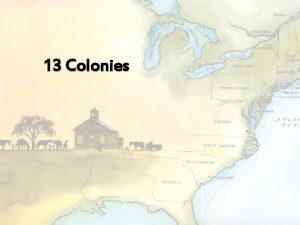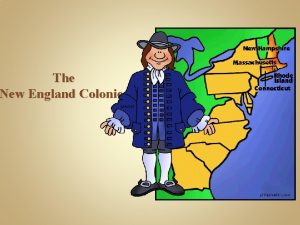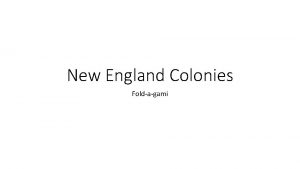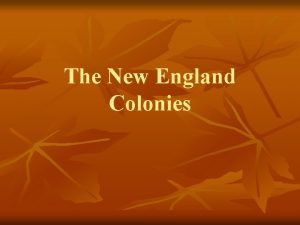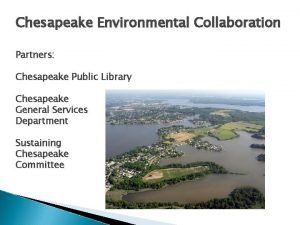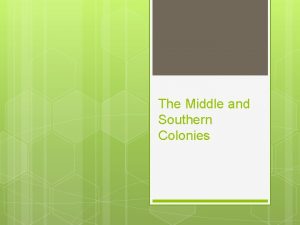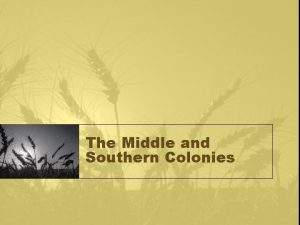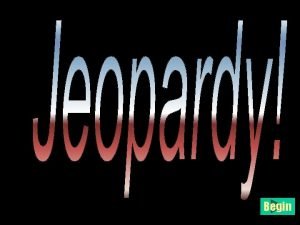Colonies Northeast New England Middle Chesapeake MidAtlantic Southern























- Slides: 23

Colonies Northeast (New England) Middle (Chesapeake) (Mid-Atlantic) Southern Economy Family Life

Colonies Northeast (New England) Middle (Chesapeake) (Mid-Atlantic) Southern

Economy Northeast -Rocky soil, but good harbors (New -Provided own labor (farming) England) -Traded with middle colonies (manufactured goods for raw goods) -Some farming Middle (Chesapeake) -traded with northern colonies (Mid-Atlantic) (raw goods for manufactured goods) Southern -Traded with England -Plantations, few cities -Cash crops: Tobacco, rice, indigo

Family Life Northeast (New England) -Mostly Puritan -large families Middle -More religious freedom (Chesapeake) -Mostly Quaker (Mid-Atlantic) Southern -Religion not as emphasized -High death rate (warm, humid climate)

Mercantilism

Many laws placed on the colonies by the British were part of an economic policy called “Mercantilism” – A belief that the colonies existed for the financial good of the mother country. (aka: Sell more than you buy. Profit for colonies = Profit for England. )

The Navigation Acts were a series of laws that didn’t allow the colonies to trade with anyone other than England. Designed to maximize capital by increasing exports and decreasing imports.

Forbade certain items (tobacco, sugar, cotton, wool, dyes, etc) to be shipped to any country, except to England. Other goods were added at a later date.

Such goods were subject to heavy fees when shipped to England, and in 1672 the same fees were imposed on goods sold from one colony to another.

Helped create a trade pattern known as the “Triangular Trade”


The route taken across the Atlantic Ocean to transport enslaved people from Africa to the Americas was known as “The Middle Passage”

Conditions were so bad on these “human cargo ships” that thousands died along the way.

2/10 died

The majority of enslaved Africans were taken to the British islands in the West Indies where they were sold to work in sugar cane fields.

Remaining slaves were taken to the 13 colonies where they worked in the fields of southern plantations.

The Great Awakening

During the late 1600’s and early 1700’s, a scientific revolution took place in Europe & the colonies. New ways of thinking were based on reason instead of religion. This period is known as The Enlightenment.

John Locke and others stressed natural rights of individuals. Main ideas focused on the idea that government should be a contract, or agreement, between itself and citizens.

Benjamin Franklin was another important figure in the Enlightenment. - Interest in science led to several inventions. - Became an admired political figure

The Great Awakening was a religious revival that went against ideas of the Enlightenment. It stressed religious and spiritual importance while the Enlightenment focused on science and more “concrete” ideas.

The Great Awakening caused huge religious diversification throughout the colonies and church attendance increased significantly.

Warm Up • What was the most interesting thing we talked about to you in standard 1 and 2? • When done, start on Flow Map.
 The northern colonies
The northern colonies Middle colonies date founded
Middle colonies date founded Compare and contrast 13 colonies
Compare and contrast 13 colonies New england, middle and southern colonies comparison chart
New england, middle and southern colonies comparison chart Midatlantic colonies
Midatlantic colonies New england mid atlantic and southern colonies
New england mid atlantic and southern colonies Southern colonies
Southern colonies Northern middle and southern colonies
Northern middle and southern colonies Chesapeake region colonies
Chesapeake region colonies Chesapeake colonies climate
Chesapeake colonies climate New england colonies
New england colonies New england aviation
New england aviation Chapter 3 lesson 2 new england colonies answer key
Chapter 3 lesson 2 new england colonies answer key Lesson 2 the new england colonies answer key
Lesson 2 the new england colonies answer key New england colonies leaders
New england colonies leaders New england map outline
New england map outline New england colonies facts
New england colonies facts New england colonies leaders
New england colonies leaders Interesting facts about the middle colonies
Interesting facts about the middle colonies Middle colonies economy
Middle colonies economy Rocky soil new england
Rocky soil new england Middle colonies terrain
Middle colonies terrain Middle colonies climate/geography
Middle colonies climate/geography Southern colonies definition
Southern colonies definition
